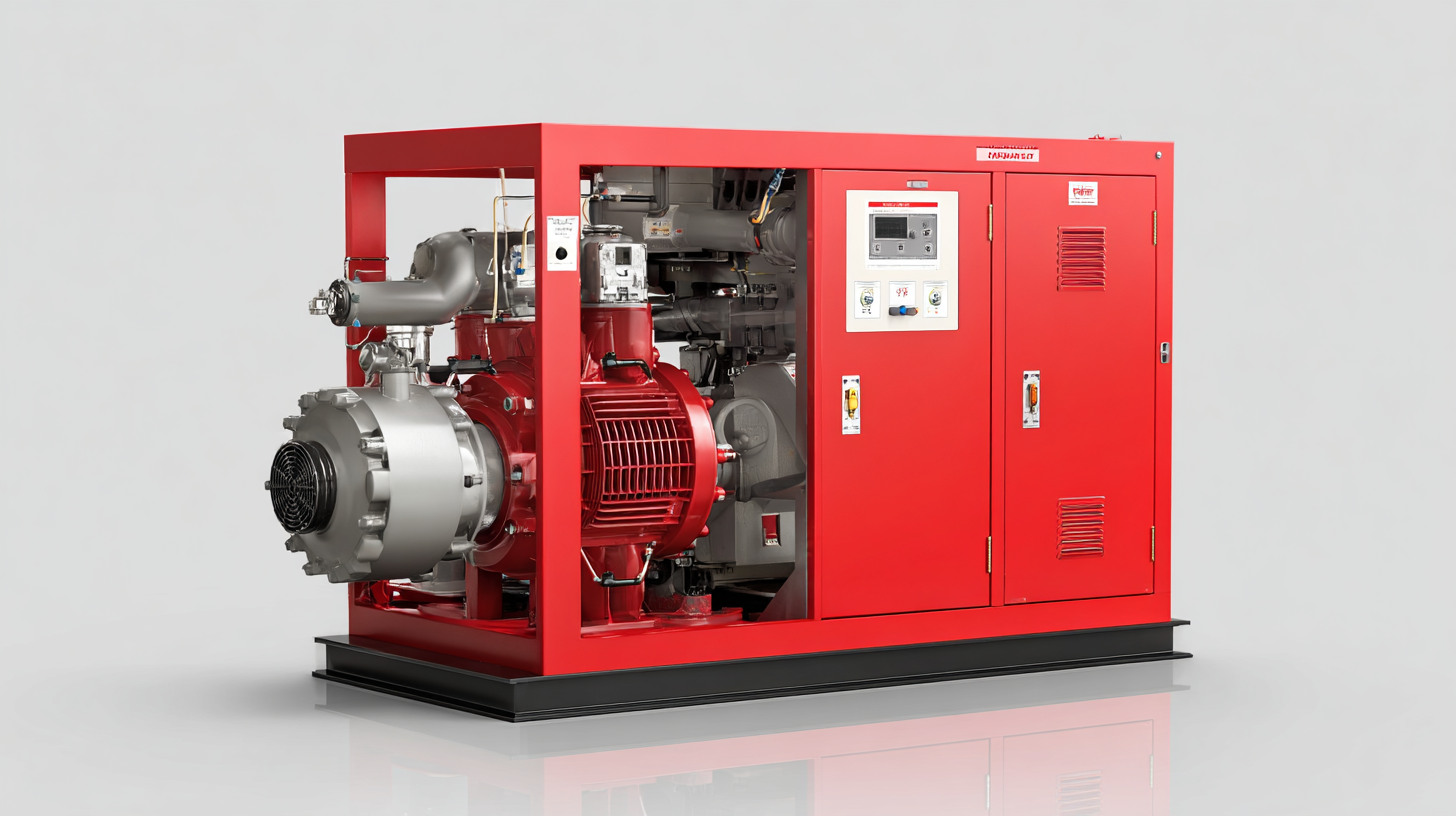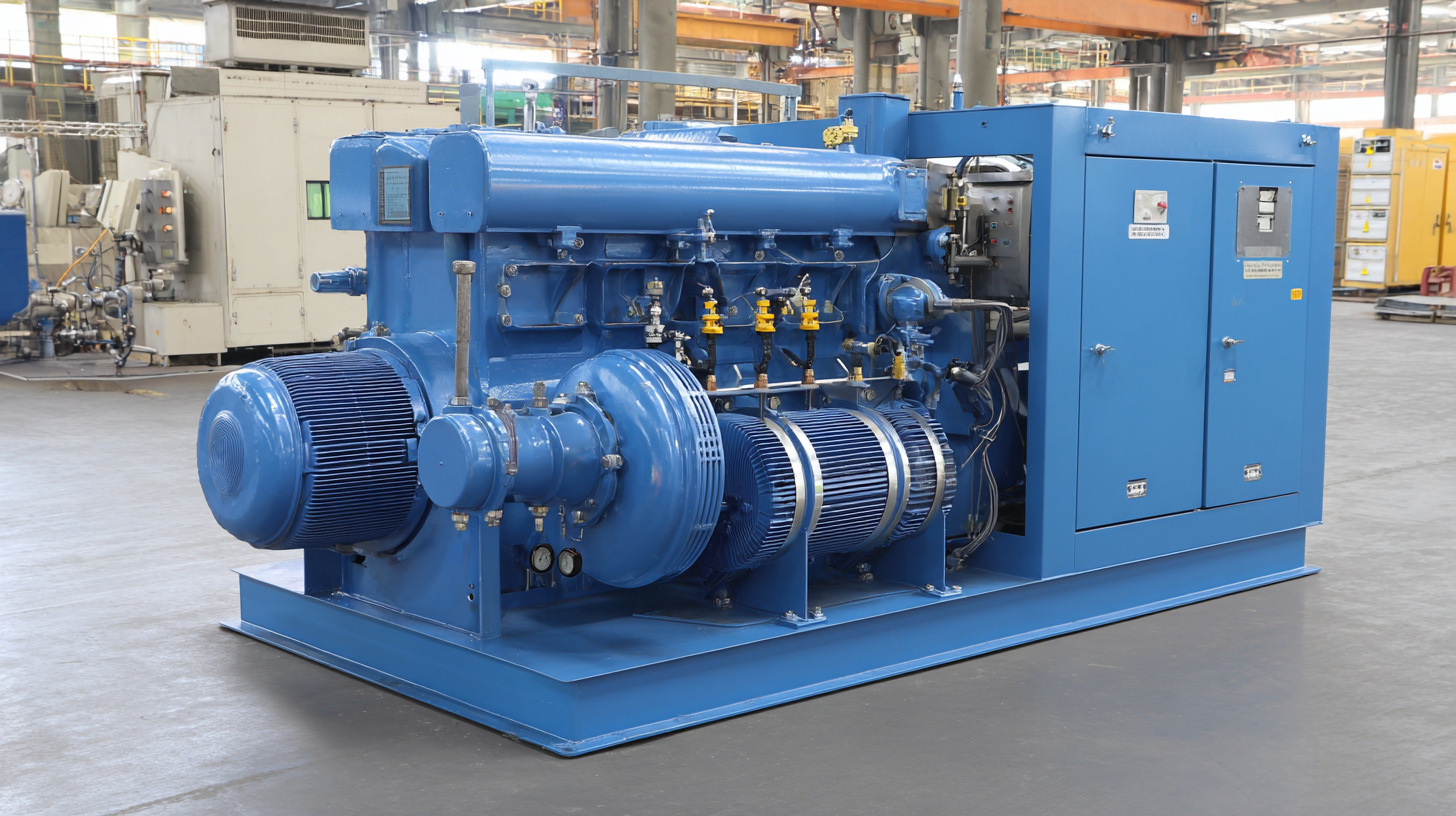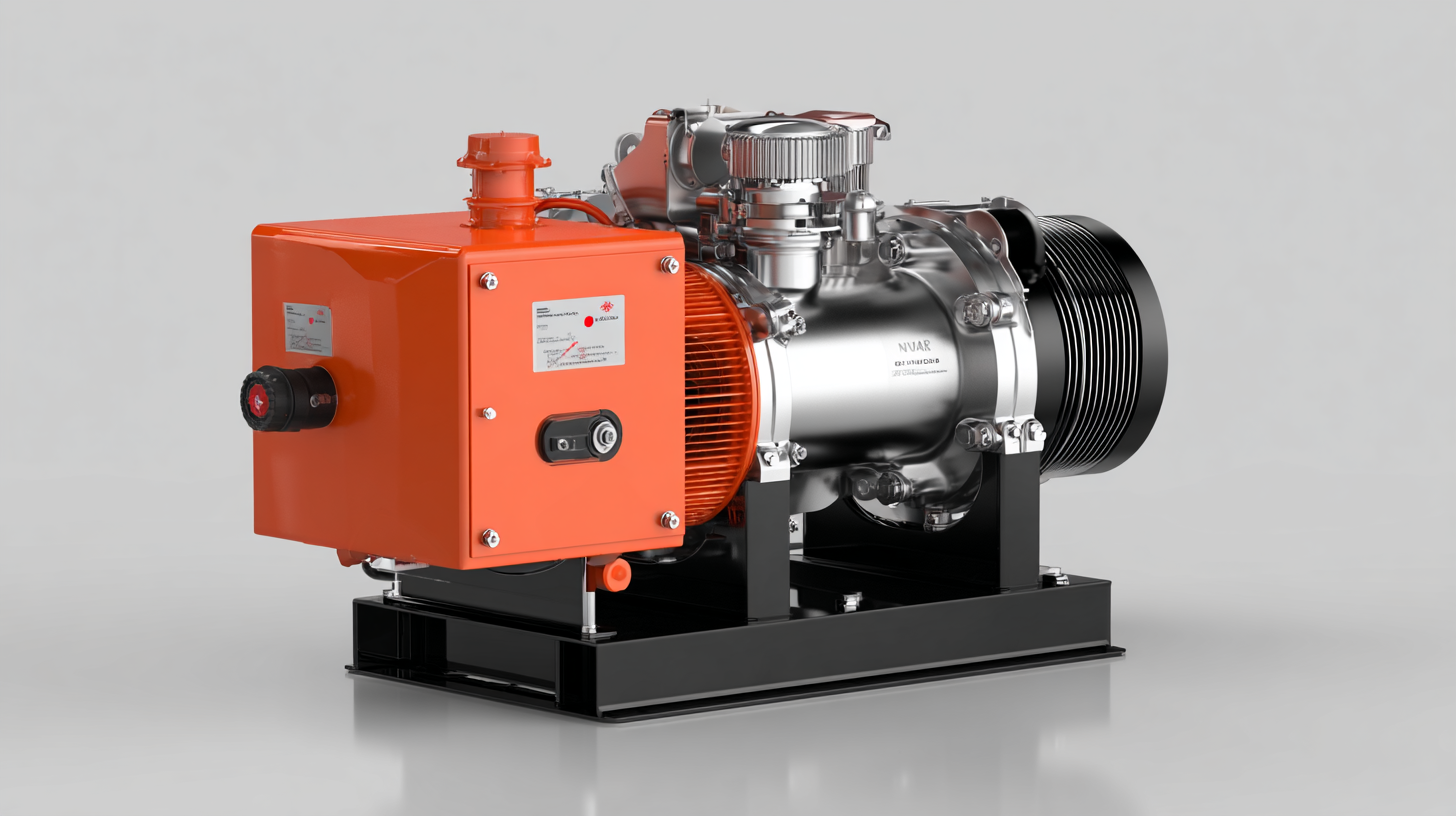2025 Industry Trends: Innovative Solutions for the Best Air Compressor Empowering Your Business
As businesses continue to evolve in the dynamic landscape of 2025, the demand for efficient and innovative solutions is more pressing than ever, particularly in the industrial sector where air compressors play a pivotal role. According to a recent market analysis by Industry Research, the global air compressor market is projected to reach USD 40.49 billion by 2025, growing at a CAGR of 4.2% from 2018 to 2025. This growth underscores the significance of selecting the right air compressor, which not only enhances productivity but also reduces operational costs. In this blog, we will explore the latest industry trends and innovative solutions that empower businesses through advancements in air compressor technology, enabling them to meet increasing demands while maintaining efficiency and sustainability.

Understanding the Latest Air Compressor Technologies Transforming Industries
As industries continue to evolve, the latest air compressor technologies are playing a pivotal role in enhancing operational efficiency and driving innovation. The emergence of smart compressors, designed with data-driven capabilities, allows for real-time monitoring and optimization of performance. This trend not only minimizes downtime but also maximizes energy efficiency, making it a crucial component for businesses aiming to reduce their carbon footprint while improving productivity.
Furthermore, the increasing demand for oil-free compressors is transforming various sectors, particularly in environments where air purity is paramount. As businesses prioritize sustainability, these energy-efficient solutions are becoming essential for complying with environmental regulations and meeting customer expectations. With the global industrial air compressor market projected to reach significant growth figures in the coming years, companies that leverage these advanced technologies will undoubtedly gain a competitive edge, paving the way for a more sustainable and economically viable future.
2025 Industry Trends: Air Compressor Market Analysis
This bar chart illustrates the projected market share of different air compressor technologies based on industry trends in 2025. It highlights the shift towards more innovative solutions that enhance efficiency and sustainability across various sectors.
Identifying Your Business Needs for Optimal Air Compressor Performance
When it comes to optimizing your business operations, identifying your specific needs is the first step towards selecting the perfect air compressor. Different industries have unique demands; whether you are in manufacturing, automotive, or construction, understanding the power output, pressure requirements, and volume of air needed will directly influence the compressor's performance. Conducting a thorough assessment of your operations will help you avoid overspending on features that are not essential for your business.
Additionally, evaluating factors such as energy efficiency can lead to significant cost savings over time. Modern air compressors come equipped with advanced technology that allows for better monitoring and control, enabling businesses to adjust their compressor settings in real-time based on operational needs. This adaptability not only improves efficiency but also extends the lifespan of the equipment, providing you with a better return on investment. Emphasizing these aspects during the selection process ensures that the air compressor you choose is a perfect fit for your business, empowering you to meet production goals seamlessly.

Exploring Energy Efficiency Solutions for Cost-Effective Air Compressor Use
As industries continue to evolve, the demand for energy-efficient solutions in air compressor use has never been more critical. In 2025, businesses are seeking innovative ways to reduce operational costs while enhancing productivity. One effective approach involves leveraging advanced compressor technologies that optimize energy consumption, ensuring that companies not only save money but also minimize their environmental impact. By investing in energy-efficient models, businesses can significantly lower their utility bills, making a positive contribution to their bottom line.
Moreover, the integration of smart technology in air compressors is paving the way for improved efficiency. Features such as real-time monitoring, predictive maintenance, and automated controls help businesses operate their compressors more effectively. These innovations empower users to identify inefficiencies in their systems, adjust operations accordingly, and ensure that the compressors run only when needed. As the industry embraces these advancements, companies can expect a transformative shift toward more sustainable and cost-effective air compressor systems that empower their operations well into the future.
2025 Industry Trends: Innovative Solutions for the Best Air Compressor Empowering Your Business - Exploring Energy Efficiency Solutions for Cost-Effective Air Compressor Use
| Trend | Description | Energy Efficiency (%) | Cost Savings ($/Year) | Implementation Time (Months) |
|---|---|---|---|---|
| Variable Frequency Drives (VFDs) | Allows the compressor to adjust its speed based on demand. | 20 | $1,500 | 3 |
| Two-Stage Compression | Increases efficiency by compressing air in two stages. | 15 | $1,200 | 4 |
| Integrated Heat Recovery | Recovers waste heat from the compressor for use in other processes. | 25 | $2,000 | 6 |
| Smart Monitoring Systems | Uses IoT to monitor compressor performance and optimize usage. | 10 | $800 | 2 |
| Oil-Free Compressors | Provides clean air without oil contamination. | 18 | $1,000 | 5 |
Innovative Maintenance Practices to Extend the Life of Your Air Compressor
Innovative maintenance practices are essential for extending the life of your air compressor, particularly as industries increasingly rely on these machines for efficient operations. According to a recent report by the Global Industrial Air Compressor Market, projected growth between 2022 and 2027 indicates a significant rise in demand—approximately 4.5% annually. This trend emphasizes the importance of effective maintenance strategies, which can significantly reduce downtime and operational costs.
 Implementing a predictive maintenance model is one of the most effective methods for maximizing the lifespan of air compressors. Data analytics and IoT technology allow businesses to monitor compressor performance continuously, predicting failures before they occur. A study by the Institute for Supply Management found that organizations that adopt predictive maintenance can save up to 30% on maintenance costs and extend equipment life by up to 50%. Furthermore, regular oil checks and filter replacements contribute to optimal compressor performance, ensuring that businesses can operate smoothly without interruption.
Implementing a predictive maintenance model is one of the most effective methods for maximizing the lifespan of air compressors. Data analytics and IoT technology allow businesses to monitor compressor performance continuously, predicting failures before they occur. A study by the Institute for Supply Management found that organizations that adopt predictive maintenance can save up to 30% on maintenance costs and extend equipment life by up to 50%. Furthermore, regular oil checks and filter replacements contribute to optimal compressor performance, ensuring that businesses can operate smoothly without interruption.
Adopting modern maintenance technologies not only ensures the reliability of air compressors but also enhances overall productivity. For example, scheduled preventive maintenance can help avoid expensive repairs and unplanned downtime. As the industry progresses toward more innovative solutions, businesses that prioritize effective maintenance will undoubtedly have a competitive edge, ensuring their compressors operate at peak efficiency for years to come.
Integrating Smart Technology for Enhanced Air Compressor Management
As industries increasingly embrace the Fourth Industrial Revolution, integrating smart technology into air compressor management has become pivotal for optimizing operations. Advanced monitoring systems equipped with IoT sensors provide real-time performance data, enabling businesses to make informed decisions that enhance efficiency. These intelligent solutions allow for predictive maintenance, reducing downtime and extending the lifespan of air compressors. By harnessing data analytics, companies can identify patterns and potential issues before they escalate, ensuring a smoother workflow and minimizing operational costs.
Furthermore, innovative air compressor solutions are now designed to be more user-friendly, featuring intuitive dashboards that streamline system management. This ease of use allows operators to monitor energy consumption, optimize pressure settings, and schedule maintenance tasks conveniently. With such enhancements, businesses can not only improve their production capabilities but also meet sustainability goals by reducing energy waste. Smart technology integrates seamlessly with existing systems, delivering insights that empower organizations to take proactive steps toward achieving operational excellence.


